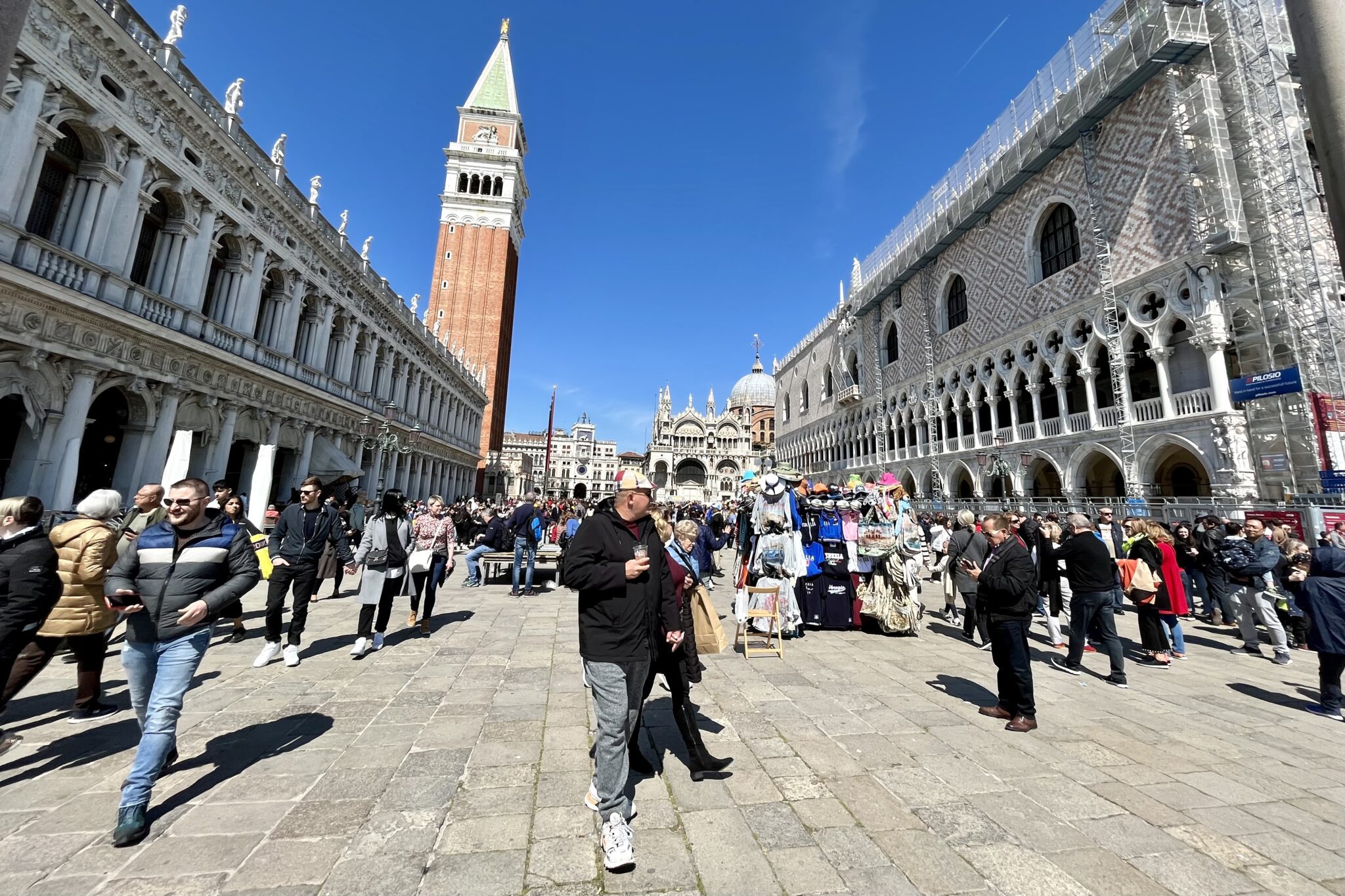Skift Take
Today's podcast looks at Venice's new velvet rope, an AI shutdown, and China and Thailand's new tourism agreement.

Skift Daily Briefing Podcast
Listen to the day’s top travel stories in under four minutes every weekday.
Good morning from Skift. It’s Wednesday, January 3. Here’s what you need to know about the business of travel today.
Listen Now
🎧 Subscribe
Apple Podcasts | Spotify | Overcast | Google Podcasts | Amazon Podcasts
Episode Notes
Officials in Venice have recently approved a measure to cap tour group sizes to help the city better manage tourist arrivals, writes Global Tourism Reporter Dawit Habtemariam.
Tour groups of more than 25 people will be banned from the city center and three of its islands starting June 1. A local tourism official said that limiting large group tours would help preserve Venice’s infrastructure and reduce overcrowding. Habtemariam notes the city is also banning portable loudspeakers used by tour guides.
Travel investor Greg O’Hara said at last year’s Skift Global Forum that Italians have been deterred from visiting Venice in part because of the huge crowds it attracts.
Next, Tripnotes got a lot of buzz in 2023 as one of the first ChatGPT-powered AI trip planners. But by December, it sold itself and shut down the site, writes Travel Technology Reporter Justin Dawes.
Dawes notes that Tripnotes was one of the first travel companies to commit to building a generative AI-powered trip planner. Tripnotes co-founder Matthew Rosenberg said he was looking to use personalized recommendations and in-app travel booking to reinvent city guides. However, Dawes reports that while Tripnotes had buzz, it needed money – which wasn’t easy to raise in 2023, especially after Silicon Valley Bank collapsed in March. Restaurant reservation startup Dorsia ultimately bought the company.
Next, China and Thailand have reached a reciprocal agreement that will permanently waive visa requirements for citizens of the two countries starting in March, reports Asia Editor Peden Doma Bhutia.
Thai Prime Minister Srettha Thavisin said on Tuesday that the agreement would help strengthen the relationship between Thailand and China. Thailand currently allows Chinese visitors to stay in the country visa free for 30 days. However, Beijing hadn’t granted Thai travelers a similar treatment until now.
China was Thailand’s second-largest tourism market in 2023, with 3.5 million Chinese travelers visiting the kingdom.
Skift AI Travel Newsletter
AI coverage across travel sectors that’s focused on separating trendy moves from good ideas – in your inbox every Friday.
Have a confidential tip for Skift? Get in touch
Tags: artificial intelligence, chatgpt, china, italy, overtourism, skift podcast, thailand, venice
Photo credit: Tourists near St. Mark's Square in Venice, Italy. Skift
